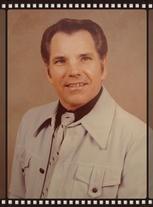"SPILT INK" & Genealogy - DNA Forum
| Forum: Spilt Ink | |||||
|
|||||
|
Ron Smith
 Posts: 58 View Profile |
#17War-time: The Dilemma; Supply and Demand Posted Sunday, February 18, 2018 06:22 PM As the folk-song explains, “Johnnie has gone for a soldier”, but it neglects to mention. That “Janie’s” new nametag reads, “Rosie, the Riviter“! Both John and Jane are missed :down on the farm where they, heretofore, were a vital part of the family enterprise. Duty calls, and the lure of the paycheck is humming the harmony! Farm labor is in short supply, but, on the other hand, “Uncle Sam wants YOU“
Early fall had arrived. Had I been able to foresee the brevity of the rest of our stay with the Kennedys, the excitement with which I faced each day, and the pleasure I found in the things I did, and in the activities of others around me, would have been replaced by a dreadful mood of gloom. The dwindling of our remaining days ticked away without notice on my part. I was busy, very busy, taking in the sights, fragrances, and flavors being afforded me by this idyllic existence! There was no shortage of vine-ripened fresh-picked watermelon and cantaloupe. I could make the rounds of the peach trees and have no trouble finding one with a heavily laden, low-hanging limb offering easy picking’s of rosy cheeked beauties, whose aroma would betray their availability. In the meadow past the pigpen, was a chinquapin oak, a chestnut close-relative, with sweet acorn-like nuts that were fun and delicious. Shoes are required: the burrs on the ground are spiny little assassins! Amid this place of plenty, there was another kind of “plenty”; plenty of fields with standing crops and plenty of labor required to gather them. The nation's farmers were called upon to produce the greatest amount of food, feed, fibers, and other vital farm materials ever taken from the land. They were called upon to feed the nation and, to some extent, the people of its allies. Specifically, along with the demand to increase peanut production to provide oil for the war effort, came advice for peanut farmers to help increase their yield. The war effort had placed a heavy demand for extra labor in the peanut and cotton fields.
The schools enrolled as late as October, or dismissed their classes so everyone could participate on whatever level they were able, from picker all the way down to water carrier. Crews had to be fed, and sometimes in shifts: dishes have to be cleaned and the tables set for the second shift. Schoolgirls will be trading in their ‘rithmetic books and spellers for dishcloths and ladles. Time’s a-wastin’! There’s no cotton going into the sack while feet are under the table! None in the sack means none on the scale; no money in the pocket! There’s a lot of ground to cover, all of it with a crop to be harvested. Three of the most labor intensive crops, peanuts, cotton and cane, all require a timely harvest, or substantial damage with loss of quality, and therefore value, could occur. Peanuts could begin to germinate and sprout while still on the vine if left in the ground. Cotton would be subject to exposure to rain and damaging winds. Cane could lose its sugar content if exposed to frost or freezing. With so much of farm labor being absorbed into the fabric of war-plant manufacturing and the military, it will not be easy. But it still will be done because it must be done! Failure is not an option. Peanuts had to be plowed twice, once with a special mule-drawn modified moldboard plow, in one direction, then again from the opposite direction, with the plow cutting the vine from the taproot on the last pass, allowing the vine to be lifted and shaken to remove the soil from the roots and pods, then laid with the pods exposed upwards to begin the drying of the nuts and vines. The lifting and shaking would often be done by children. The vines would be pitch-forked onto a wagon and brought to a stacking pole with a raised base so the ventilated stack would finish drying. In the absence of a mechanical thresher, recently available, but not to every farm, the dried peanuts would be picked from the vine
Mom, as in days of her youth, headed to the cotton fields with the rest of the pickers. I got my 4’ bag and went with her. Mother was a serious field hand because that’s the way her daddy raised his kids. Having married at sixteen and attained the age of twenty five, she had not had time to forget how the de-linting process of a row of cotton was performed, she fell right into line. One lady, tall and sturdy started right behind us, picking in the next row over from where Mom and I were. She had her hair pinned back in a bun and covered with a home-made sun bonnet, the standard farm woman fashion-piece, and she took a likin’ to me and started a conversation as the two ladies were picking adjacent rows. She was head and shoulders taller than Mom. She picked me up and sat me comfortably on the back end of her cotton sack and kept me there, keeping up a lively dialog in her colorful Southern vernacular, and I was enchanted. Up and down the rows, with the long fingers of her dark-skinned hands moving as if they had a mind of their own, filling the bag, then to the scale-wagon, water bucket, then back to the field, and back on the cotton sack; buddies; friends for life; I felt as though I had found my Fairy-God-Mother!
The first good frost would chill the husks of the new pecan crop causing them to open and release the nuts to be harvested. The same frost would kill the tops of the standing cane and the sugar content would begin to diminish almost immediately. This would not be allowed to happen. When the growing season was at its extreme limit and the risk of frost or freezing weather was growing eminent, the workers would strip the cane of its leaves, top the foliage from the stalks, cut the cane and bring it in to be squeezed and boiled down into syrup. In places where freezing does not occur, cane is allowed to grow for another six months to another year. You have heard, “Where does the time go when you’re having fun?” It certainly has a way of slipping away! The telegram finally came: we were being relocated 45 miles to the west to Hazlehurst, where no doubt, Mom will have to employ her tub-full of supplies, once we find a “home”. The Kennedy farm was a place of superlatives: I have never seen bigger, redder, or tasted sweeter watermelons than the Black Diamonds and Dixie Queens from his field! I Have never tasted a tastier peach than the red-skinned white peaches he called his Indian Peach. I have never found a better tasting cane syrup than that produced from his mill and cooked in his “pan”, and sold under the O.J. Kennedy label. And I’ll let you guess what picture comes to mind when I hear on the television, the song of a Cardinal rooster on the sound track. If you guessed, “sitting on the veranda, in the porch swing, a tinkling glass if iced tea frosting-over the sides of the tall glass, gazing upward into the branches of the tallest cedar, trying to locate the little warbler”, you’d be in the ball park! |
||||
|
|||||
|
A. J. Smith
 Posts: 29 View Profile |
RE: #17War-time: The Dilemma; Supply and Demand Posted Wednesday, March 21, 2018 12:00 PM I'm really enjoying your tales of farm life, Ron. Other than Mom's "Victory Garden," we didn't do much farming. We had a field of lespedeza that was mowed twice a year for hay. A neighbor baled it up for us. We didn't suffer much from shortages during the war. We ate a lot of rabbits and Mom traded hog and beef meat for sugar. The oil wells produced a by-product Dad called "drip gas," which worked well-enough in the ancient cars my parents drove, enabling Mom to car pool to the bomber plant in Tulsa where she was a "Rosie the Rivet Inspector." |
||||
|
|||||
|
Ron Smith
 Posts: 58 View Profile |
RE: #17War-time: The Dilemma; Supply and Demand Posted Wednesday, March 21, 2018 02:38 PM My father-in-law was still using drip gas in the early 60s, collected every cold (colder, the better) morning from his three wells near 21st and Memorial, south of where they built East Central H.S., and a couple of other leases farther south. He used it in his '48 Ford farm truck for as long as he managed his cows and wells, back when crude was around $4.00 a barell. He knew how to squeeze a nickel. My dad worked at the bomber plant until we left for Wyoming, He started as a machinist and ended up as an inspector on the final station. Our folks may have known each other, though the "line" was a mile long, it's a small world! It is amazing how industrious and innovative folks can br when circumstances dictate, and the poor cottontail did his part, with an occasional squirrel and stringer of fish helping to take up the slack! |
||||
|
|||||

